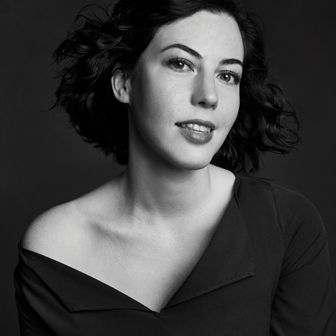
Perfection is a moving target. This week, the Cut explores the allure of trying to achieve the impossible.
By all appearances, actress Jamie-Lynn Sigler seemed to have it all at age 20. She was starring on the popular HBO show The Sopranos, had a burgeoning singing career, and had made it into the exclusive young Hollywood scene. But, unbeknownst to her fans, Sigler had just been diagnosed with multiple sclerosis, a debilitating disease of the central nervous system, and she was grappling not only with chronic pain, but also with keeping her illness a secret.
“I was advised by an industry professional to keep it to myself, because other people would decide what my limits were, if I had any, and they could potentially fire me or not hire me,” Sigler said. “I was able to hide any pain. It was like acting in a way — where if nobody knew and I didn’t talk about it, I could almost pretend that it wasn’t real.”
Sigler is merely one of 1.5 billion people in the world to suffer from chronic pain — which can be caused by a variety of injuries, joint problems, and diseases, including MS. The Academy of Pain Medicine reports that more than three-quarters of patients with chronic pain suffer from depression at some point, and a 2011 study linked self-concealment — the tendency to hide negative or distressing personal information from others — with high levels of chronic pain. “Individuals with chronic pain might conceal aspects of their condition for various reasons. For instance, they might perceive pain as a source of stigma or as a burden for close others,” the study authors wrote.
Many chronic-pain sufferers choose to hide what they’re going through out of shame or for fear of judgment. Some worry that they will be thought of as weak, imperfect, or defective, while others worry that their employer will feel they’re unable to complete the task at hand. And so, those with chronic pain often wear a mask: Outwardly they may appear perfectly fine, but inwardly, they often feel like screaming. That’s certainly the case for Emily, a New Yorker who works in the music industry.
Emily has spent the past year going from doctor to doctor trying to find out what’s causing the chronic pain in her neck, shoulders, and upper spine. She told the Cut that she often forces herself to power through excruciating pain at work, during concerts, and even on dates, and finds herself trying to work out a knot during meetings or leaning against a subway pole for support. “It’s incredibly lonely,” she said. “It’s very challenging to explain and it’s not something I enjoy talking about.”
Padma Lakshmi, Top Chef host and author of The Encyclopedia of Spices and Herbs, spent years hiding her struggle with endometriosis, a painful disorder in which uterine tissue grows outside of the uterus, affecting 176 million women across the world. She partially hid the disease because she suffered for years without a proper diagnosis, but also because she didn’t want people to think less of her. “Endometriosis is a very isolating disease. No one wants to talk about their period because it’s a very personal issue and nobody wants to be perceived as weak or incapable compared to the next person, who’s probably also up for the same work,” Lakshmi said.
At the start of her career, Lakshmi would power through modeling jobs as if everything were fine, when in reality she was suffering from extremely painful periods. “I would just try and run to the bathroom in between shots to make sure I wasn’t leaking through my undergarments and so that I could vomit, because sometimes I would get so nauseous,” she said. “You just try and swallow the pain; you try and buck up and be strong. You don’t want to talk about it, so sometimes you do wind up cancelling jobs or not showing up to work.”
To this day, ten years after receiving a correct diagnosis and undergoing proper treatment, Lakshmi still has to push through the pain on the set of Top Chef from time to time, without letting people know that she’s struggling, even though she would rather be lying in bed with a heating pad. “If I don’t show up to work, then 130 other people don’t show up to work. They need me there,” she noted.
Alice*, a journalist in New York City, suffers a painful chronic bladder condition called interstitial cystitis, which she’s largely kept private from her co-workers. That’s partially because her condition is quite intimate and she feels uncomfortable discussing it, but also because she doesn’t want people to feel as though she is complaining. “It was very, very hard at work to tell people why I was getting up to go to the bathroom 20 times a day. I felt so self-conscious, and so stupid,” she told the Cut. “I got over that, but I do think that there’s a pressure to just power through. My work has been fine, but I think in the general culture, there is an issue with women and illness at work.”
Women, in particular, feel compelled to hide their pain, out of pressure to perfectly fill multiple roles, according to Rachel Noble, a counselor specializing in chronic pain. “You wind up with a lot of sadness, because you can’t be the person you want to be. Women really do feel that they should be able to do it all,” Noble said. On the whole, women want to be the perfect mother, the perfect partner, the perfect friend, the perfect worker, the perfect daughter, and there is guilt and shame associated with the inability to live up to that expectation. Sigler added, “We feel like we’re supposed to be the strong ones; we’re supposed to be the ones that keep everything together. We don’t want to seem weak; we don’t want to seem like we need anyone. We want to feel capable and independent.”
Sigler spent 15 years hiding her illness, which affects more than 2.3 million people worldwide. Eventually, she noticed that she blamed herself for developing MS, as if she had done something wrong. According to Noble, that phenomenon can be seen in many patients struggling with chronic conditions. “It’s not uncommon with anyone that gets diagnosed with a chronic illness to think, ‘God, did I do something wrong?’ Especially when it’s something that’s complicated,” Noble said. “Part of that is just people trying to make sense of something, and when you’re struggling with depression … your answer to [that question] is ‘because I’m bad.’”
For much of that time, Sigler felt incredibly alone, and fell in and out of depression. It wasn’t until she started opening up to those closest to her, and accepting that it’s okay to be vulnerable and ask for help when you need it, that she started to believe that she had nothing to be ashamed of. That’s why, this past January, she decided to open up about the disease in an interview with People, just after her wedding. “I just really felt it was time for me to just open up, just for myself, to kind of release myself from this prison I put myself in with this secret,” Sigler told the Cut. “I didn’t do anything wrong. I didn’t hurt anybody. I didn’t choose this.”
After speaking out about her illness, Sigler started to hear from other women suffering from similar illnesses. Finally, after years of not having anyone to relate to, she found herself commiserating with women who felt the same pain she felt, and understood completely what she was going through. “What I found so surprising is that so many women were writing to tell me that [they haven’t told anyone either]. Just to know that, across the board, people have this fear and these feelings, it was so sad and it made me so happy that I came out about it, because I don’t want people to feel that way,” Sigler said.
Jamie Stelter, a traffic reporter at NY1, had a similar experience when she began blogging about her experience with rheumatoid arthritis, a disease affecting one percent of the world’s population. Her blog, TV Dinner, started out as a place for her to keep all the recipes she had been making after changing up her diet to manage her RA symptoms. But soon, Stelter found herself hearing from women who had found her blog and related to her story.
“I love that. It makes me feel better; I feel like I’m helping someone in some way,” Stelter said. “I know sometimes you can feel alone and that people don’t understand what you’re going through, so I like the fact that a stranger can email me and we can have that connection. I’ve stayed in good touch with a lot of people who have emailed me over the years.”
Likewise, Lakshmi founded the Endometriosis Foundation of America in 2009 so that other women suffering from the disease would know that they’re not alone. Her organization also works to educate women so that they can be properly diagnosed and treated, rather than suffer from excruciating periods without understanding why.
“I do think that the more of us who open our mouths and talk openly about what it is to be a woman in the 21st century — who’s ambitious, who wants to work and do well and contribute to her community — [the more] that we support each other,” Lakshmi said. “We [should] admit that there are difficulties that we face, and that admission is not weakness, it is actually a show of confidence and strength and unity among women. I hope that we can work toward that.”
*Name has been changed.





